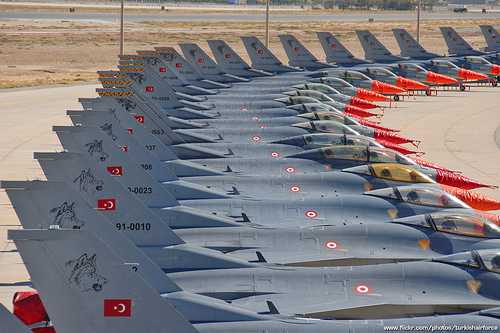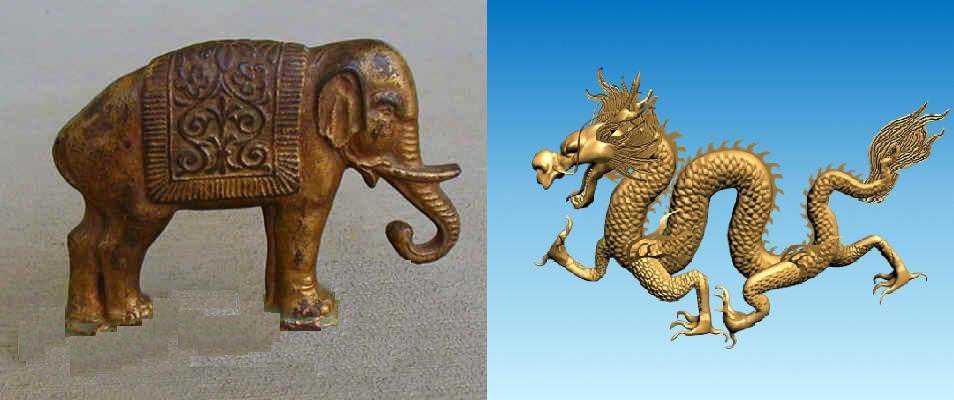
Turkey’s willingness to build a strategic bilateral cooperation with China should not be regarded as an exceptional move, Foreign Minister Ahmet Davutoğlu has stated, arguing that, on the contrary, such a move is a sign of normalization. Davutoğlu departed Ankara on Wednesday for a six-day official visit to China, with Kashgar, where Muslim Uighurs make up the vast majority of the population, being his first stop during the visit.
Turkey already has exemplary relations with Western countries, and its bilateral relations with globally rising powers such as Brazil, China, India and Russia have been expanding recently, Davutoğlu said, while speaking to a group of journalists on board a plane en route to Kashgar from Ankara.
“The basis of our entire policy is the normalization of history. Our relations being good with China at the moment is not something abnormal; it was abnormal to have bad relations,” Davutoğlu was quoted as saying in apparent response to comments displaying developing ties between Turkey and China as proof of a so-called axis shift from the West to the East in Turkish foreign policy.
With his conception of the “normalization” of history, Davutoğlu underlines the importance of eliminating Cold War and colonial abnormalities. “[The] end of the Cold War — [Francis] Fukuyama claimed [it] was the end of history. I claimed history had begun because there was an abnormality [during] the Cold War and that history will try to normalize it,” Davutoğlu said at the time.
Turkey’s developing relations with these global powers are not emerging at the expense of neglecting its cooperation with the West, Davutoğlu said. “They should not consider these relations as an alternative [to existing relations with Western countries],” he stressed, while underlining that Turkey has been continuing its intense diplomatic contact with Western powers as well.
Foreign Minister Ahmet Davutoğlu met with Nur Bekri, chairman of the Xinjiang Uighur Autonomous Region, in Urumqi on the first day of his visit to China.
“My trip to Brussels is no longer news,” the minister said and added that US President Barack Obama and Prime Minister Recep Tayyip Erdoğan were meeting six or seven times a year while the US and Turkish leaders met at most two times a year a decade ago.
Davutoğlu’s visit to China came weeks after Chinese Premier Wen Jiabao’s visit to Turkey during which the two countries took a landmark step in developing their bilateral ties, which they have begun to define as a “strategic partnership.”
During the visit, China and Turkey agreed to use their own currencies, rather than dollars, in bilateral trade, while Wen and Erdoğan signed eight deals in areas including transportation and trade. In October 2009 Erdoğan announced that Turkey and Iran had prepared a legal framework to transition to agreements in national currencies. According to Davutoğlu, Ankara’s policy that insists on using diplomatic means to resolve the dispute over Iran’s nuclear program has increased China’s interest in developing bilateral relations with Turkey.
“They have noticed the big potential,” Davutoğlu said, arguing that maintaining stability in the Middle East would be highly beneficial, particularly for Turkey and China.
Ankara and Beijing have both increased their commercial ties with Iran, signing deals on oil and gas fields to the frustration of Western powers, who suspect the Islamic republic of seeking to build a secret nuclear weapons program, an allegation the latter denies. China reluctantly backed the last round of UN sanctions on Iran while Turkey, along with Brazil, voted against the sanctions. Both China and Turkey have defended their trade with Iran as legitimate.
Bilateral cooperation in the military field is a significant aspect of relations between Turkey and China. In September, they held joint aerial exercises at Turkey’s training range in the Central Anatolian town of Konya, where Anatolian Eagle exercises are taking place between NATO allies and friendly countries. Some eyebrows were raised following the exercises, with reports suggesting that the US and Israel were watching with concern the growing military cooperation among Turkey, China and Iran.
Increasing support to Xinjiang
Davutoğlu told reporters that his visit to China is part of an action plan jointly drawn up by Turkey and China following the violent clashes between local ethnic-Turkic Muslim Uighurs and the dominant Han Chinese community in June 2009. Calling the clashes, which came days after President Abdullah Gül’s landmark visit to this country last year, as a tough crisis, Davutoğlu said the crisis had now been overcome, with high-level visits taking place between the countries at a regular pace. The clashes that broke out in July in Urumqi left 197 dead and several hundred wounded, according to official Chinese numbers.
Davutoğlu, who proceeded to Urumqi following his visit to Kashgar, highlighted the symbolic importance of his itinerary. According to him, better relations between Turkey and the Chinese administration will help Turkey increase its contribution to people living in the Xinjiang Uighur Autonomous Region, populated by ethnic Turkic Muslim Uighurs.
With Ankara and Beijing planning to have at least one leader-level visit per year, Erdoğan will pay an official visit to this country next year, Davutoğlu announced.
29 October 2010, Friday
SERVET YANATMA/OSMAN EROL KASHGAR/URUMQI





